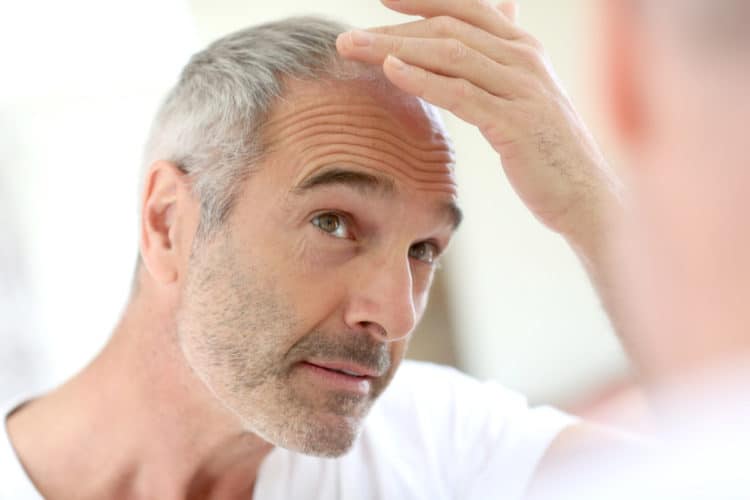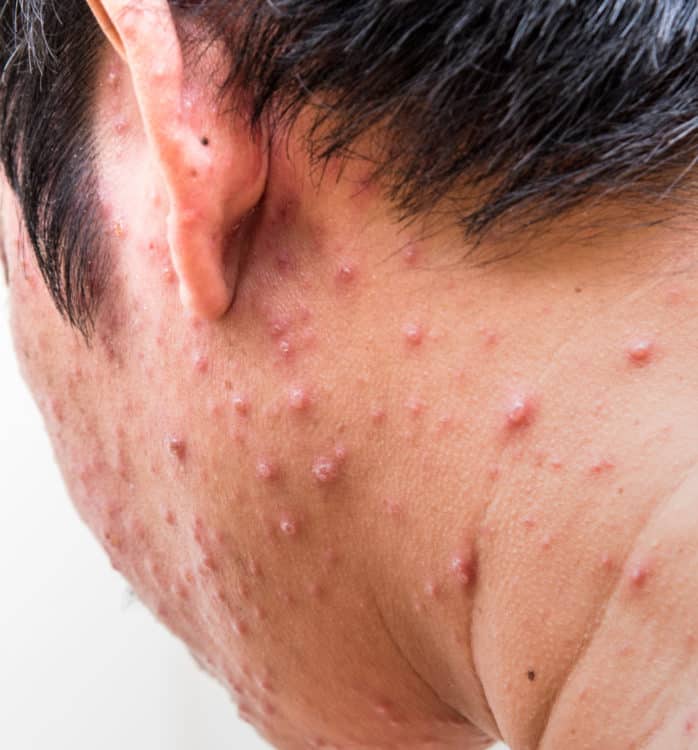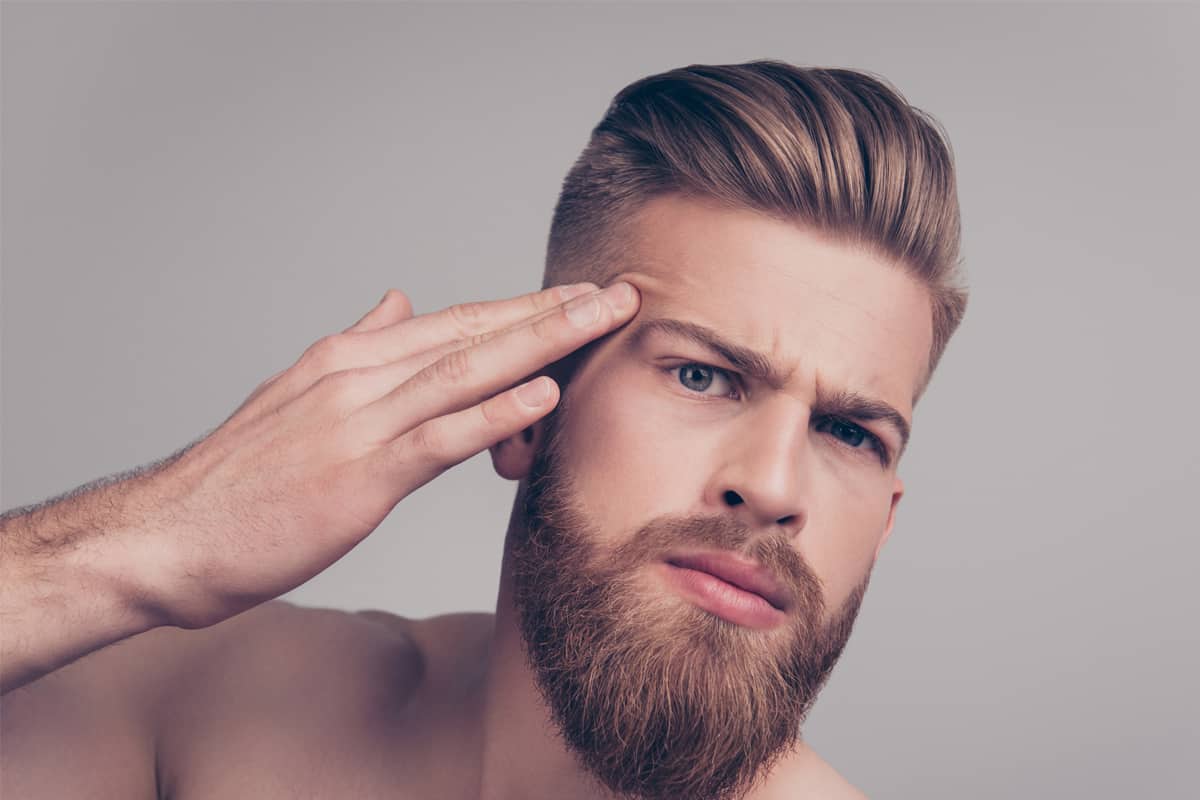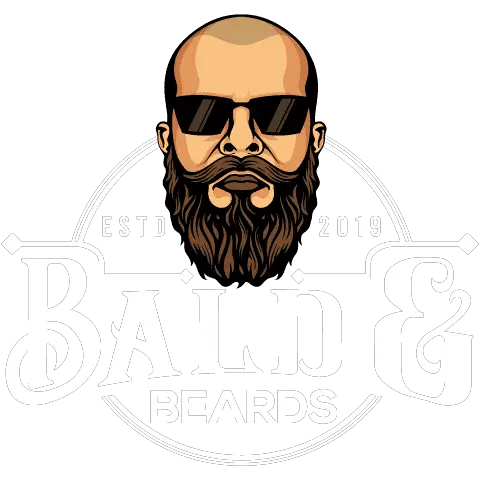Have you been experiencing scalp acne? While pimples aren’t commonly found on the scalp, sensitive skin may easily be aggravated and trigger troublesome acne, especially if you have clogged pores.
Need to heal your acne and steer towards better scalp care? There are some treatments you can do right at home to help your scalp acne. Keep reading.
What is Scalp Acne?
Scalp acne is pimples, blackheads or red bumps throughout the head typically caused by clogged pores. Improving hygiene by frequent washing to remove hair or scalp product buildup, oily skin, along with certain medications, can help unclog pores.
These acne outbreaks can be painful, itchy, and persistent. If you haven’t experienced scalp acne before, you may be seeing a reaction to a shampoo or conditioner.

Scalp Acne Cause
When you start seeing pimples on your scalp, you may also notice large zits on your neck and back as well. If you haven’t always had acne in these areas, look at changes in your diet, medications, shampoo, conditioner, or other hair styling products.
Here’s some causes for scalp acne:
- Clogged pores due to dead skin or excess oil.
- Buildup of leave-in treatments, hairspray, hair creams, and gels.
- Reaction to ingredients in hair styling products and shampoos.
- Not washing your scalp thoroughly.
- Not washing hair after sweating.
- Sweating with a cap or hat on.
- Changes in your diet, such as more sugary carbohydrates.
Clogged Pores
When a pore gets clogged, pimples on your scalp can pop up. Pores around a hair follicles typically get clogged because of product buildup or dead skin cells. In other cases, it’s sebum-related, natural oil that your body uses to moisturize your skin.
Scalp acne can start out as a few pimples or even large zits on the back of your neck and head. It could also be ingrown scalp hair if you use a head shaver.
Poor Hygiene
Not washing your scalp after excessive sweating like after a workout can clog pores. Excessive use of products like sprays, lotions, wax, sunblock, etc. can also clog pores.
It’s recommended to have a good cleansing routine. So using a good scalp exfoliator and head wash is as simple as it gets.
If you’re bald and getting scalp pimples, you can start by changing your scalp care routine.
Skin Conditions
If you have scalp acne all over your neck and head, you may also be dealing with a specific skin ailment or germ, such as staphylococcus aureus or problems with yeast.
In other cases, acne may be caused by germs or chronic conditions, such as:
- Staphylococcus aureus
- Yeasts (Malassezia family)
- Propionbacterium acnes
- Cutibacterium
- Demodex folliculorum
Identifying Scalp Acne
There’s a difference between large pimples (zits), blackheads, and rash-like whiteheads. It can be difficult to identify the problem until you look at the type of acne occurring on your scalp.

Scalp Pimple Types
There are typically three types of pimples you’ll find with scalp acne:
- Scalp Folliculitis: Bacteria infects your scalp, clogging pores and causing inflammation. Small, itchy red bumps will start to form soon after.
- Seborrheic Dermatitis:Often presents with dandruff and leaves your scalp scaly and red. Picking at your pimps can lead to more scarring and hair loss.
- Pilar Cysts: These are larger, hard bumps that fill with keratin and rarely have a white head.
Treatment
If you already have acne on the scalp, there are a few ointments and topical treatments that can make it go away quickly. However, always talk to a doctor if you’re having issues with chronic acne. There could be a deeper issue.
Over the Counter Treatments
The best way to fix acne on your scalp is to change your shampoo, conditioner, and styling products. Certain ingredients like sulfates, petroleum, jojoba oil, silicones, and shea butter are known to cause clogged pores and zits, particularly with oily skin.
Medicated shampoos such as antibacterial products are available online and in pharmacies. You don’t need a prescription to get these products either.
Some of these products include:
- Tea tree oil: Popular essential oil for getting rid of bacteria and clearing up acne.
- Salicylic acid: Ointments and patches with salicylic acid get rid of dead skin cells and dry up pimples on the scalp quickly.
- Glycolic acid: These products exfoliate your skin and remove bacteria, excess sebum, and dead skin cells.
- Benzoyl peroxide: Applying benzoyl peroxide on acne can dry out the oil and eliminate bacteria, such as Propionibacterium acne.
- Ketoconazole: This is an antifungal that treats red, itchy, scaly skin.
- Ciclopirox: You commonly see this ingredient in antifungals and dandruff shampoos. It works best for treating yeast and dry skin problems.
If you experience hair loss or inflammation, then you may need stronger treatments, such as oral antibiotics, steroid injections, antihistamines, or specific medications for scalp acne.
Prevention
Monitor life changes that could be related to the pimple outbreak. If you have flare-ups after a night out, using a certain product, or consuming something different then take notice of what changed in your lifestyle, cosmetic products, diet or supplements. Then eliminate the suspect items one by one.
For others who sweat a lot or go to the gym every day, you may need to wash your scalp and try a medicated shampoo with zinc like Head and Shoulders to start with
Other ways to prevent acne flare-ups include:
- Wash hair daily but not if you have dry skin
- Wear looser-fitting hats or stop wearing hats all together
- Avoid hair styling products
- Add vitamins A, D, and E to your diet or take a multivitamin supplement
- Start a food diary to see if certain foods are causing acne
- Switch to natural shampoos and conditioners
Washing and Dry Skin
Washing your hair too often can strip away sebum, leading to dry skin and even inflammation. Instead of shampooing and conditioning your scalp every time you shower, switch to a gentler shampoo with natural ingredients and not use conditioner.
If you continue to have issues, talk to a board-certified dermatologist to get a prescription for scalp treatment with anti-inflammatory properties.
Scalp acne is a common condition that usually goes away on its own, but if you consistently see pimples on the scalp even with a medicated shampoo, then there could be another problem. This is a good time to talk to your doctor so they can identify the exact type of acne and suggest a more appropriate treatment.


